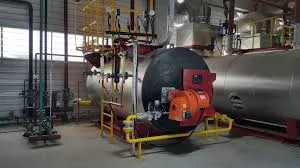
Oct . 13, 2024 19:27 Back to list
how does oil boiler heat water
How Does an Oil Boiler Heat Water?
Oil boilers are a popular choice for heating homes and providing hot water, especially in areas where natural gas is not readily available. The process by which an oil boiler heats water is both efficient and effective, utilizing the combustion of heating oil to generate heat that is then transferred to water. This article will delve into the workings of an oil boiler, outlining the process step by step and highlighting its benefits.
The Basics of Oil Boilers
An oil boiler is a type of heating system that uses heating oil as its fuel source. The boiler itself consists of a combustion chamber, a heat exchanger, and various components to facilitate the heating process. When the temperature in a building drops below the desired setting, the oil boiler is activated to provide heat and hot water.
The Heating Process
1. Fuel Delivery It all starts when heating oil is delivered to the home and stored in a tank. The tank can be either above ground or underground, and it is crucial that it is properly maintained to ensure safety and efficiency.
2. Ignition When a thermostat signals the need for heat, the oil boiler begins the ignition process. An oil pump draws the heating oil from the tank and sends it to the burner. Here, a nozzle sprays the oil into the combustion chamber, where it is mixed with air. An igniter then sparks and ignites the oil, creating a controlled flame.
3. Heat Generation As the oil burns in the combustion chamber, it generates a significant amount of heat. This heat is essential for the next step, which involves transferring it to the water.
4. Heat Exchange The heated air from the combustion chamber rises and passes through a heat exchanger, which is designed to maximize contact with water. The heat exchanger is typically made of metal and features a series of pipes or fins that facilitate efficient heat transfer. Water from the boiler system flows through these pipes, absorbing the heat generated from the burning oil.
how does oil boiler heat water

5. Hot Water Delivery Once the water has been heated to the desired temperature, it is circulated throughout the home via a network of pipes. This hot water can be used for various household purposes, including showers, dishwashing, and heating radiators.
6. Exhaust and Ventilation After the combustion process, the remaining gases from burning oil must be expelled to maintain efficiency and safety. An exhaust system, which includes a flue or chimney, vent these gases outside. Proper ventilation is essential to prevent carbon monoxide buildup and ensure the system operates safely.
Efficiency and Sustainability
Oil boilers have evolved significantly over the years, with many modern models achieving high levels of efficiency. High-efficiency oil boilers can reach over 90% efficiency, meaning that a minimal amount of energy from the fuel is wasted. Furthermore, they often come equipped with features such as programmable thermostats and zoning options to optimize energy use.
However, it's important to address the environmental impact of using heating oil. Although advancements have made oil boilers cleaner, the combustion of fossil fuels still contributes to greenhouse gas emissions. As such, homeowners are encouraged to consider renewable energy options, such as biofuels or heat pumps, as alternatives that may align better with sustainability goals.
Maintenance and Care
Regular maintenance is essential to ensure the longevity and efficiency of an oil boiler. Homeowners should schedule annual inspections with qualified technicians who can clean the burner, inspect the heat exchanger, and check the overall system for leaks or wear. Keeping the oil tank full can also help maintain positive pressure in the system, preventing air from entering the lines.
Conclusion
Understanding how an oil boiler heats water provides valuable insight into one of the most effective heating systems available today. By harnessing the power of heating oil, these boilers can deliver reliable and consistent hot water and warmth throughout a home. To maximize efficiency and minimize environmental impact, homeowners should invest in regular maintenance and consider sustainable alternatives when available. With proper care and awareness, oil boilers can continue to serve as an effective heating solution for many years.
-
High-Efficiency Gas Thermal Oil Boilers | HPT Models
NewsJul.31,2025
-
Oil Fired Hot Water Boilers Sale - High Efficiency & Affordable
NewsJul.31,2025
-
High-Efficiency Commercial Oil Fired Steam Boiler for Industry
NewsJul.30,2025
-
High-Efficiency Biomass Fired Thermal Oil Boiler Solutions
NewsJul.30,2025
-
High Efficiency Gas Fired Thermal Oil Boiler for Industrial Heating
NewsJul.29,2025
-
High-Efficiency Gas Fired Hot Water Boiler for Sale – Reliable & Affordable
NewsJul.29,2025
Related PRODUCTS






















